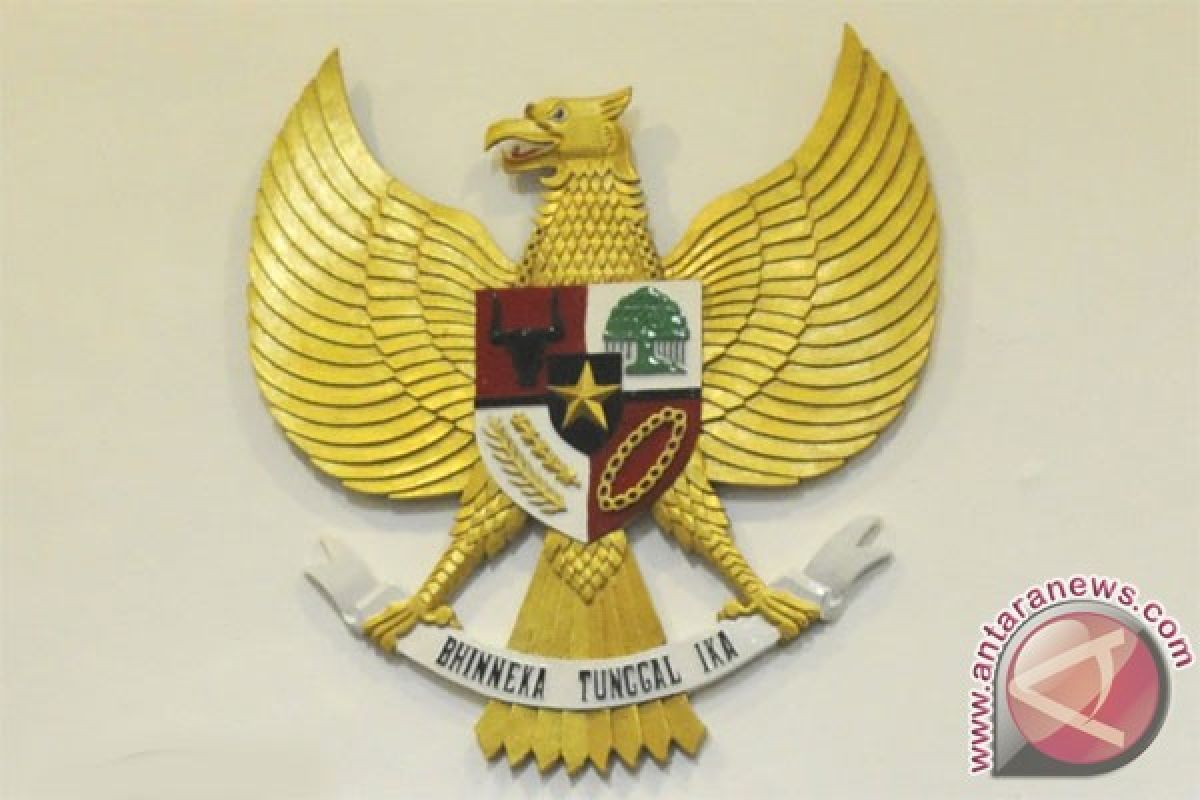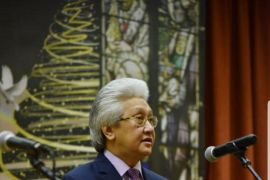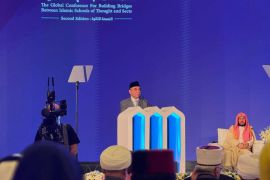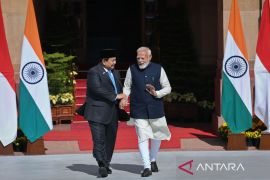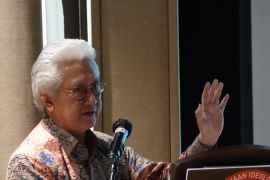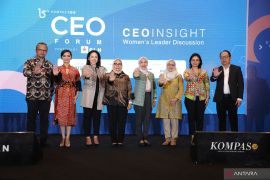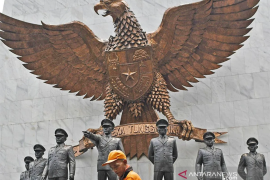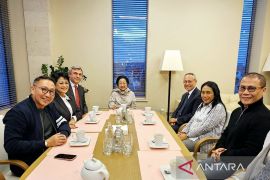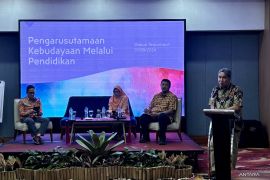The foundation and symbol of the state, Pancasila, should serve as the main cohesive power to maintain the integrity and entity of the Unitary State of the Republic of Indonesia (NKRI).
Therefore, all parties have to stay on guard against the efforts of certain groups that undermine the ideology of Pancasila, which aims to unify Indonesia.
After acting as the inspector of the ceremony to commemorate Pancasila Sanctity Day in West Sumatra on Wednesday, Governor Irwan Prayitno noted that all government policies should take a cue from the philosophy of Pancasila that ensures social justice for all Indonesians.
Irwan remarked that the interpretation of Pancasila in the present day context was a natural thing to do, but it should not evolve into a reason to create divisions in the country.
Therefore, the governor voiced his total disagreement with certain parties who opined that many people from the younger generation were not adhering to the values of Pancasila.
"People may assess Pancasila differently, but for me, its values should be firmly held by the people of Indonesia. We will also continue to promote the understanding of the values of Pancasila among the younger generation," he noted.
In the meantime, West Sumatra Provincial Legislative Assembly Speaker Hendra Irwan Rahim pointed out that since Indonesia gained independence, Pancasila has often been undermined by various parties, but until this day, it remains the nations ideology.
Therefore, he emphasized that the people should be wary of the latent dangers of changing the nations foundation.
Prof Gufran Ali Ibrahim of the Khairun University in Ternate, North Maluku, stated on Friday that the younger generation no longer upholds and practices the values of Pancasila in their day-to-day lives.
"Even many of the young people have failed to memorize the five principles of Pancasila: Belief in one supreme God, Humanitarianism, Nationalism expressed in the unity of Indonesia, Consultative democracy, and Social justice," he affirmed here on Friday.
He noted that the younger generation and most Indonesians no longer apply the values of Pancasila, and therefore, character education was necessary to handle the situation.
In the meantime, social and political scientist from the Catholic University of Widya Mandira Kupang Frans Bapa Tokan stated that Pancasila, as the state ideology, was in a serious crisis since many Indonesians were no longer following it.
"Cases of corruption involving state leaders have increased, and the elite group is neglecting the spirit and the true values of the state ideology," Frans remarked in Kupang, East Nusa Tenggara, on Wednesday.
The Corruption Eradication Commission has been in the news for dragging corrupt officials, almost every week, to its detention cells.
During the commemoration of Pancasila Sanctity day, Frans emphasized that several Indonesians, including the countrys leaders, no longer followed Pancasilas teachings of tolerance, willingness to sacrifice, and mutual help.
Sheer ignorance in inculcating the values is manifesting itself through indifference in attitude, growing individualism, corruption, and communal, tribal, and religious conflicts, he pointed out.
According to him, deviating from the five principles of Pancasila has threatened the nations integrity.
"Long-harbored political revenge had bred hatred among political opponents with the people at the grass-root level bearing the worst brunt," he added.
He stated that national character building is the only panacea for all social evils, and the call for mental revolution in the current times has become more relevant than ever.
President-elect Joko Widodo has, on several occasions, highlighted the importance of mental revolution in his per-election campaigns.
Besides this, the values of Pancasila should be revived in social life in order to suppress the spread of the ideology of radicalism and terrorism.
Culture and Education Minister Mohammad Nuh noted in a written message read out by Mataram Deputy Mayor H. Mohan Roliskana during Pancasila Sanctity Day on Wednesday that the ideology of radicalism and other similar ideologies really run contrary to Pancasila.
"Therefore, we have to completely eradicate the ideology and values of radicalism and the like," the minister noted.
Nuh remarked that one of the phenomena in the globalization era is the occurrence of cross-border values between nations and even between communities or groups of smaller communities.
Among the cross-border values or ideology is radicalism. People harboring this kind of ideology always consider themselves to be correct, and they ignore the basic rights of others.
"No wonder, radicalism and other similar ideologies are contrary to Pancasila," noted the culture and education minister.
Therefore, he emphasized that in such a scenario, the ideology of Pancasila should continue to be upheld and strengthened in order to enable the people from diverse religious backgrounds, ethnicity, races, customs, and cultures to co-exist in perfect harmony, peace, and tolerance.
On the other hand, the minister also called on all parties to build a superior civilized nation, which is able to demonstrate its character and identity without losing the opportunity and ability to communicate with other nations.
(O001/INE)
EDITED BY INE
(H-YH)
(O001/KR-BSR/H-YH)
Reporter: Otniel Tamindael
Editor: Jafar M Sidik
Copyright © ANTARA 2014
